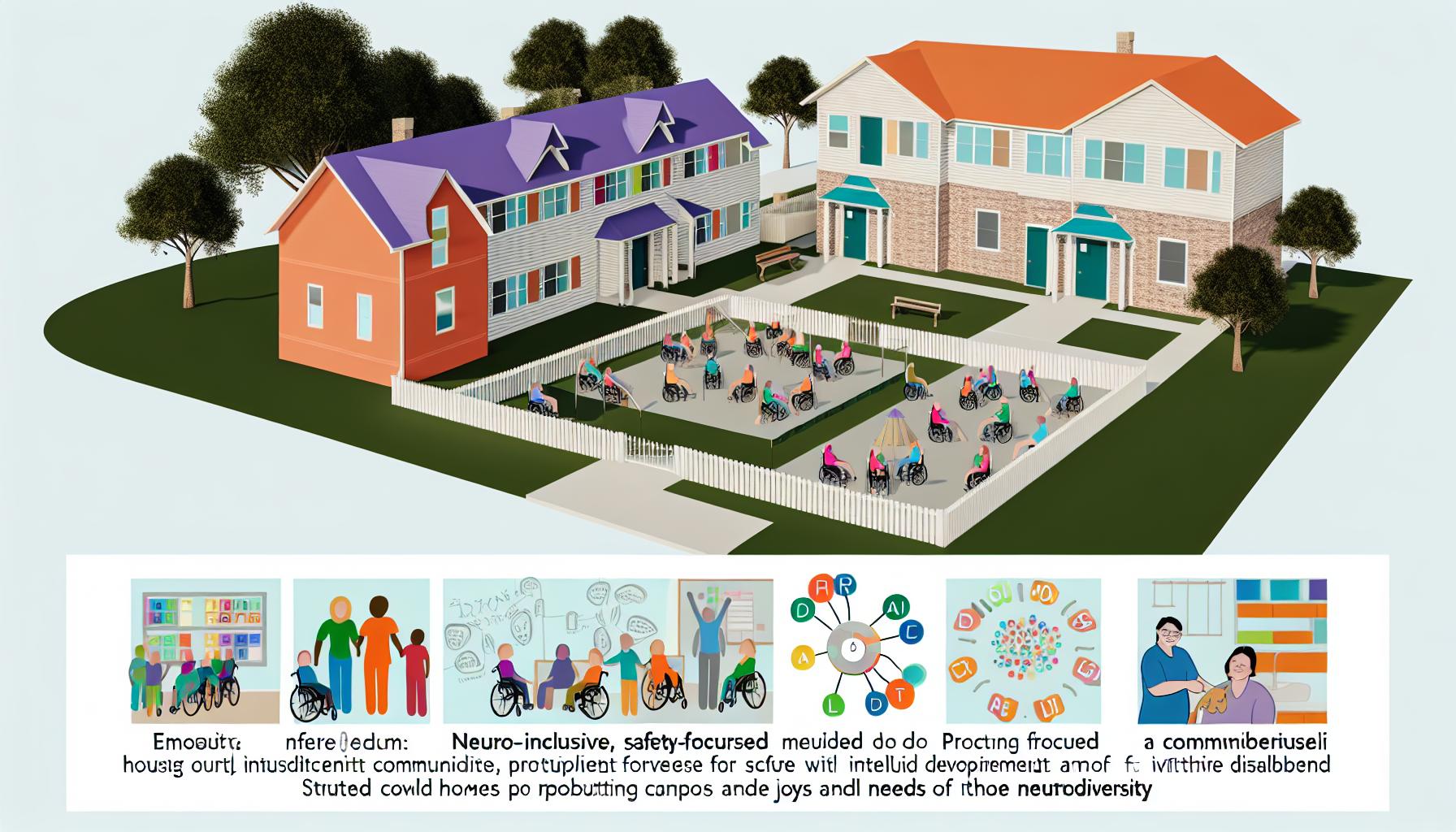Housing Crisis for Adults with Intellectual & Developmental Disability
 Jim Richardson
·
3 minute read
Jim Richardson
·
3 minute read
Finding a Place to Call Home
The housing crisis affects people of all abilities. But people with neurodiverse abilities face particular challenges when it comes to finding a place to call home. People with neurodiversity have a variety of neurological differences that impact the way their brain processes information, learn and remember things, or respond to sights, sounds, tastes, smells and other stimuli. Researchers estimate that approximately 20% of the population has some form of neurodiversity.
The most commonly diagnosed types are Autism Spectrum Disorder (ASD), Attention Deficit Hyperactivity Disorder (ADHD), and Specific Learning Disorders (LD). We know these individuals have trouble locating affordable housing for many different reasons ranging from being unable to get through an application process because of processing issues to not feeling welcome in certain communities due to social awkwardness and isolation. In this blog post we will look at why so many adults with neurodiverse abilities experience such difficulty in finding a place to call home.
What is a Housing Crisis?
A housing crisis occurs when the demand for housing exceeds the supply of available housing and leads to a shortage of affordable housing. The crisis is often a result of population growth outpacing the creation of new housing units. The U.S. is currently in the midst of a housing crisis. Initially triggered by the subprime mortgage crisis, which resulted in significant economic losses and foreclosures. In turn, this led to a reduced supply of mortgage loans, a decline in home ownership, and a rise in rental rates. The risk of experiencing a housing crisis is amplified for people with disabilities. Approximately 80% of people with disabilities are expected to need assistive or supportive housing services at some point in their lifetime. Yet, there is a significant shortage of affordable housing for people with disabilities.
Finding a place to call home is difficult for everyone.
People with all types of abilities, ages, and income levels experience challenges when trying to find a place to live. For example, a student may have a hard time finding an affordable room, while a family could get stuck in a bidding war and pay too much for a home. The housing crisis affects people in different ways, and there are many things to keep in mind when trying to find a place to call home.
Why Finding a Place to Call Home is so Difficult for Adults with Neurodiversity
The difficulties in finding housing for people with neurodiversity often stem from the fact that many landlords, property managers, and real estate agents are not aware of their needs. Another challenge is that many people with neurodiversity are unable to navigate the often complicated application process for housing assistance due to processing issues or a lack of support and services in their area. There are also issues of inclusion and accessibility when it comes to finding a place to call home. People with neurodiversity may not feel welcomed in certain communities because of their social awkwardness and/or isolation. Some people with neurodiversity may also find it difficult to get a foot in the door at a rental property, since they may not have a consistent income, a credit score, or references. Check out our approach here.
Why there is still a Housing Crisis for Adults with Neurodiversity
The federal agency charged with administering and enforcing the Fair Housing Act is The National Fair Housing Alliance (NFHA). The NFHA defines housing discrimination as any action that treats people differently because of their race, color, religion, sex, disability, sexual orientation, gender identity, or other protected characteristics. The organization has found that discrimination against people with disabilities, including those with neurodiverse abilities, is at an all-time high. A survey found that more than half of people with disabilities who were seeking a place to live were denied by the landlord, had the landlord make unreasonable requirements, or were asked for extra deposits or fees. And why hasn’t our state or federal government stepped up to permanently solve this issue?
Limited Access to Support and Services
Many people with neurodiversity are unable to access the support and services they need to find housing. This could be due to a lack of sufficient and accessible programs in their area, social isolation that makes it difficult to ask for help, or a lack of awareness on the part of community members. In some cases, people with neurodiversity do not qualify for the programs that exist, or the application and screening process for these programs is so onerous that they are unable to navigate them. This is especially challenging for people with neurodiversity who are not receiving any financial assistance because they are unable to navigate the system.
People with neurodiversity who are receiving Social Security Disability Insurance (SSDI) or Supplemental Security Income (SSI) do have access to housing assistance, but the program is extremely onerous and challenging. The application process is difficult and takes time to get approved. The process can take anywhere from six to 24 months, and people with neurodiversity may not be able to successfully navigate it without assistance. Read the article we published in Business Chief magazine.
Conclusion
The housing crisis affects people of all abilities, but people with neurodiversity face particular challenges when it comes to finding a place to call home. People with neurodiversity have a variety of neurological differences that may impact the way their brain processes information, learn and remember things, or respond to sights, sounds, tastes, smells, and other stimuli. People with neurodiversity may also find it difficult to navigate the system for housing assistance or have limited access to the support and services they need to find housing. The housing crisis affects people of all abilities. People with neurodiversity face particular challenges when it comes to finding a place to call home.



